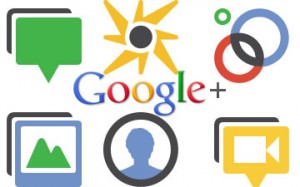Google+ is Google’s new social network that aims to topple social networking giant, Facebook, as well as other networking sites already crippled by Facebook’s popularity. Google execs claim that due to Google’s presence in nearly every area of the web, social networking with Google+ becomes simpler in that everything can be shared more easily. So, a G+ user’s Picasa album is now their “photos” page. Their Google Docs, Videos and Calendar are all linked to the Google+ profile as well. Then, by using “Circles” within Google+, users can decide what information to share and who is able to see it.
Google+ does give users a way to make sure that the correct groups of people see only the posts, photos, etc. on the profile that they want others to see. However, many people are confused about how the “Circles” work and are still trying to figure out which Picasa albums and YouTube videos are visible to each circle of friends. Add in a natural capacity for human error and it is very likely that someone’s mother/son/boss is going to see that photo/video/status update from that one crazy party last summer. While this isn’t strictly a Google issue, it is more likely to happen as users keep track of more social networking accounts all at once.
While many people wonder if they should sign up for Google+, Google has decided not to leave it up to the individual. Part of registration for a new Gmail account is a page asking users to submit their profile information for Google+. Even if the individual never uses Google+ after filling out the information, they are still counted as a new user. Soon, other Google services may utilize this same requirement.
Because Google already has access to every part of a user’s life, some have raised concerns about privacy issues. How will users ever know exactly what will be shared with whom? Although there is fear related to social networking’s ever expanding abilities to share “private” information with people and companies for whom it was not intended, most users don’t care enough to do anything about it. For instance, the most common password used on the internet is still “password” even after years of warnings about email hacking and identity theft. Not only that, but a quick search of Facebook shows that a large number of people use Facebook’s default security settings, leaving everything open for anyone to see.
Google and Facebook users alike are so accustomed to seeing the results of information sharing that many people do not even consider what information had to be accessed behind the scenes to get those results. While it is obvious to most people that advertisements within their Gmail boxes are related to the links they click and the key words used online, how many users are actually upset that Google has taken the liberty of reading their email to get those key words? Facebook users have been seeing what their friends “like” in advertisements forever. How many of them think twice before they click “like” on an item that will no doubt be advertised to all of their friends with their endorsement? There are probably not very many.
While people as a whole are not typically open to change, Google is actively forcing Google+ on all of its users. Eventually, anyone with a Gmail account will have a Google+ account as well. Google has enough resources behind its newest project that it is likely to enjoy at least moderate success. However, to come anywhere near the popularity of Facebook, Google is going to have to offer users something amazing that is not offered with Facebook. Something big is the only way that Google+ will be able to keep itself in the game.

